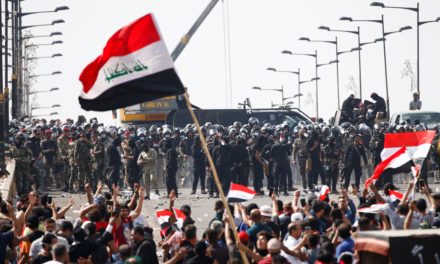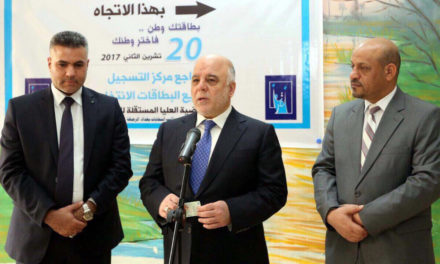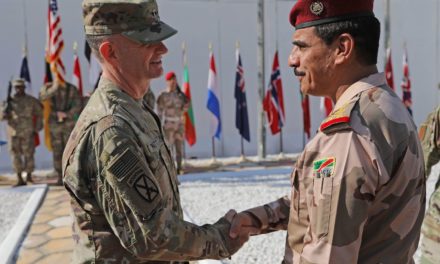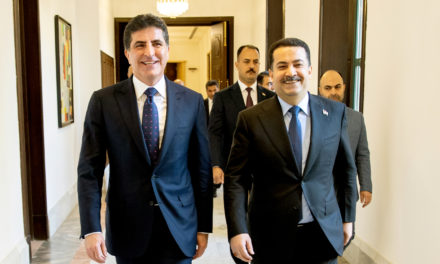(Photo: Maher Nazeh/Reuters)
Iraq currently faces three interdependent and interwoven challenges which challenge the unity of the state and its ability to function.
First, we have a severe geopolitical tsunami between Iran and its supporters (inside and outside Iraq) on one hand and the US (with regional and domestic Iraqi supporters) on the other. This showdown will undoubtedly consume much energy from the Iraqi body (state and people).
Second is the inability of the government to provide fundamental services to its citizens. This high level of the dysfunctionality of the state, with its fractured structures, is leading to severe civil discontent in which riots and revolt will be the norm and may escalate to armed resistance.
The third is the inability of the political class to coexist and form a government without the exclusion of the other. Within the Shia blocks, if either Sa’eroon or Fatah are excluded from participation in the next government then we may face serious armed revolts within a few months, more so if these parties, with their military wings, feel that the State (via the other participating parties in the government) will undermine their control. To bring a certain level of political harmony to Shia blocks, it needs to lead this process and give up some of its traditional control.
Bringing these three challenges into one pot does mean a very dangerous cocktail in which the unity of the country will be challenged, but before then the severity and possibility of armed conflict will take place.
Currently, the process of forming the government is at a severe stage, especially as we see the unwillingness of the large blocs to be flexible in their approach, coinciding with the constitutional breaches and an unclear timeline for forming the government. This dilemma can only be resolved by agreeing on an incoming prime minister acceptable to the political majority. This can be achieved through the proposal of a draft power-sharing agreement or a political contract by concessions from the main Shiite blocs. This dilemma can be resolved only by separating the prime minister’s position from the fierce political conflict on this critical position, i.e. separating the course of state reform on a dedicated path away from political parties’ quotas and their electoral entitlements.
The new prime minister needs to be extremely politically savvy, technocratic, have reasonable international exposure, and willing to form a national unity government in which winning parties participate in the cabinet based on their electoral weight within our Council of Representatives. He should be offered the post and not be included in the current positions’ allocations which are based on the point system. Hence, he will not take away the weight of the political parties nor be a hostage to their pressure. He certainly needs to be known to the parties and not new to the political terrain. Also, let us not forget that the crisis between the Shiite axis on the prime minister and the quotas (point) system can be transformed into a new power deal to implement a new government manifesto.
The new prime minister would need to define a new political contract and manifesto with his cabinet and parliament in which the focus of his government is on the rule of law, reform of the state, providing services and the fight against corruption. This cabinet should consist of candidates from political blocs and independents, but it is necessary to have a condition of competence in them and allow the prime minister to choose them within the basket of nominations of political blocs and beyond.
There are very few names that fit this idea, and there are those who firmly believe that the chances of success for this proposal will increase if we seek to appoint a politically independent candidate by parachuting a new prime minister acceptable to the majority. However, it is necessary first to think and agree with this approach and way out. Indeed, many will resist and oppose this approach at the beginning, and of course, it will not be easy to ask and convince the parties concerned to give up some of their influence, but it is an opportunity and achievable if we focus our efforts on it.
Finally, it is necessary for everyone who has a voice to reflect ideas from within or outside the box and especially on how to help our country at this critical hour.

Lukman Faily
Lukman Faily served as Iraqi ambassador to Japan and the United States.










